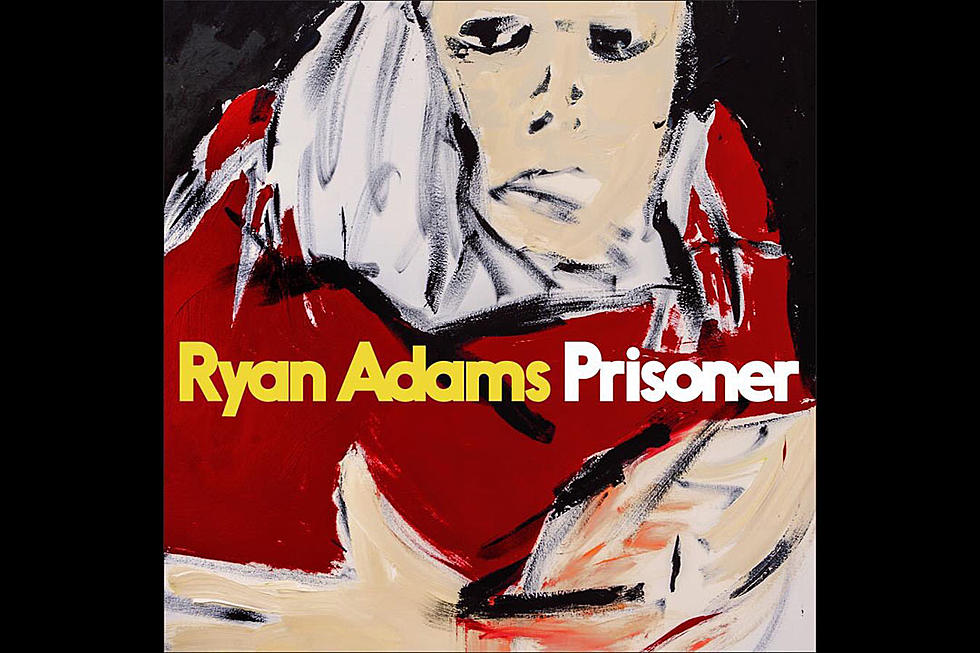15 Years Ago: Ryan Adams Goes Outside His Comfort Zone on ‘Gold’
"Like classic rock radio, where you're listening to Van Morrison and then the Rolling Stones and then Otis Redding."
So Ryan Adams explained his goals for his second solo effort, Gold, after producer Ethan Johns asked him what he wanted the record to sound like. Although that checklist might have come as something of a surprise to fans who only knew Adams from his days fronting the alt-country group Whiskeytown — or his first solo release, the raw Heartbreaker — they certainly served him well, both critically and commercially.
Although audiences were only starting to get a sense of it at the time, Adams was already proving himself a ceaselessly restless and ferociously prolific artist. After infamously disbanding the Whiskeytown lineup in the midst of a 1997 gig, he waited until 2000 to emerge with Heartbreaker — then set about building a vast backlog of eclectic material that started to bear fruit with Gold and fed into a remarkable run of 11 albums over the next 11 years.
Listeners might not have been able to tell in terms of Gold's sound, but Whiskeytown wasn't quite out of Adams' system while he was working on the record. Freed from his deal with the band's label, Outpost, he signed a contract with the new imprint Lost Highway — where he took the tapes for their vaulted final LP, Pneumonia, and remixed it for a belated May 22, 2001 release. Meanwhile, even as he prepared to diverge from the alt-country vein that gave him an audience, he stayed true to the confessional songwriting that had always been at the core of who he was as a performer.
"See, my job is to talk about my f---in' feelings or about what's on my mind as an artist. People don't f---ing need clever anymore," Adams argued. "If I hear one more clever record, I'm gonna throw up. What I wanna hear is the Band singing 'It Makes No Difference' and hearing Rick Danko nearly f---ing break your f---ing heart in absolute half when he hits the bridge."
Adams also had a bit of a chip on his shoulder. "I was trying to prove something to myself," he told SPIN. "I wanted to invent a modern classic." To that end, he embraced Johns' comparatively lush production techniques, affording his songs a radio-ready gloss they'd lacked with Whiskeytown or Heartbreaker.
"Ethan produced the record to make whatever savage heart that I had come out," he told MTV. "In doing that, he threw me into using different instruments — like the Chamberlain or tack piano or other obstacles — in order to relearn myself, so that I wasn't just manipulating my influences."
Initially planning to put out Gold as a double album, Adams eventually winnowed down the track listing to 16 cuts at his new label's insistence. As would be the case later in his career, Adams bridled at corporate restrictions on what he could put out and when — particularly after the company took five of the songs he'd wanted on the LP and appended them to early copies as a limited edition bonus disc.
"[The label] took the last five songs, made it a bonus disc and put it on the first 150,000 copies," he later complained. "F---ing my fans over and making them pay extra for a record I wanted to be a double album. They counted that as one record."
Wherever the cracks might have been in Adams' bond with Lost Highway, their association gave him some of the biggest and most widely acclaimed hits of his career — starting with Gold, which arrived in stores on Sept. 25, 2001. Landing on shelves two weeks after the terrorist attacks that unsettled the nation, the record unintentionally captured the zeitgeist with a cover photo depicting Adams standing in front of a giant American flag — and a leadoff single, "New York, New York," that name-checked the city where the atrocities took place and came with a video that included footage of the towers knocked down in the attacks. Of course, the album artwork had been finalized prior to Sept. 11 — and true to form, Adams had been thinking more of a relationship than a place when he wrote "New York, New York."
"It's actually a love song to a particular person, and in place of her name, I just say 'New York,'" Adams said in a New York Times Q&A. "It's got a lot to do with the city, because that's where we were together a lot, and how I think about the city is based on where we went together and what we did. But it wasn't intended as some anthem or anything."
Ultimately, Gold proved every bit the mid-sized hit Adams needed at that point in his career, peaking at No. 59 in the U.S. and sending "New York, New York" just outside the Billboard Hot 100's orbit. Later releases would climb higher on the charts, and some would earn a bit more of a buzz, but Gold caught him at a moment when he was still finding his footing as a solo artist — and even then, he knew he wasn't out to achieve household name status.
"I didn't want to be a star. I still don't. I'm happy right here. I hope it doesn't get offered to me, because I'll just say no. There's no glory in this for me. Usually, I just want the person I wrote the song for to hear it," Adams told Rolling Stone. "Putting your left foot on a monitor speaker, in leather pants and a muscle shirt, singing, 'Can you take me higher' to 100,000 people? That's not cool. That's boring. You're obviously doing something wrong."
The 50 Most Influential Alternative Musicians of the 21st Century
More From The Moose 94.7 FM










